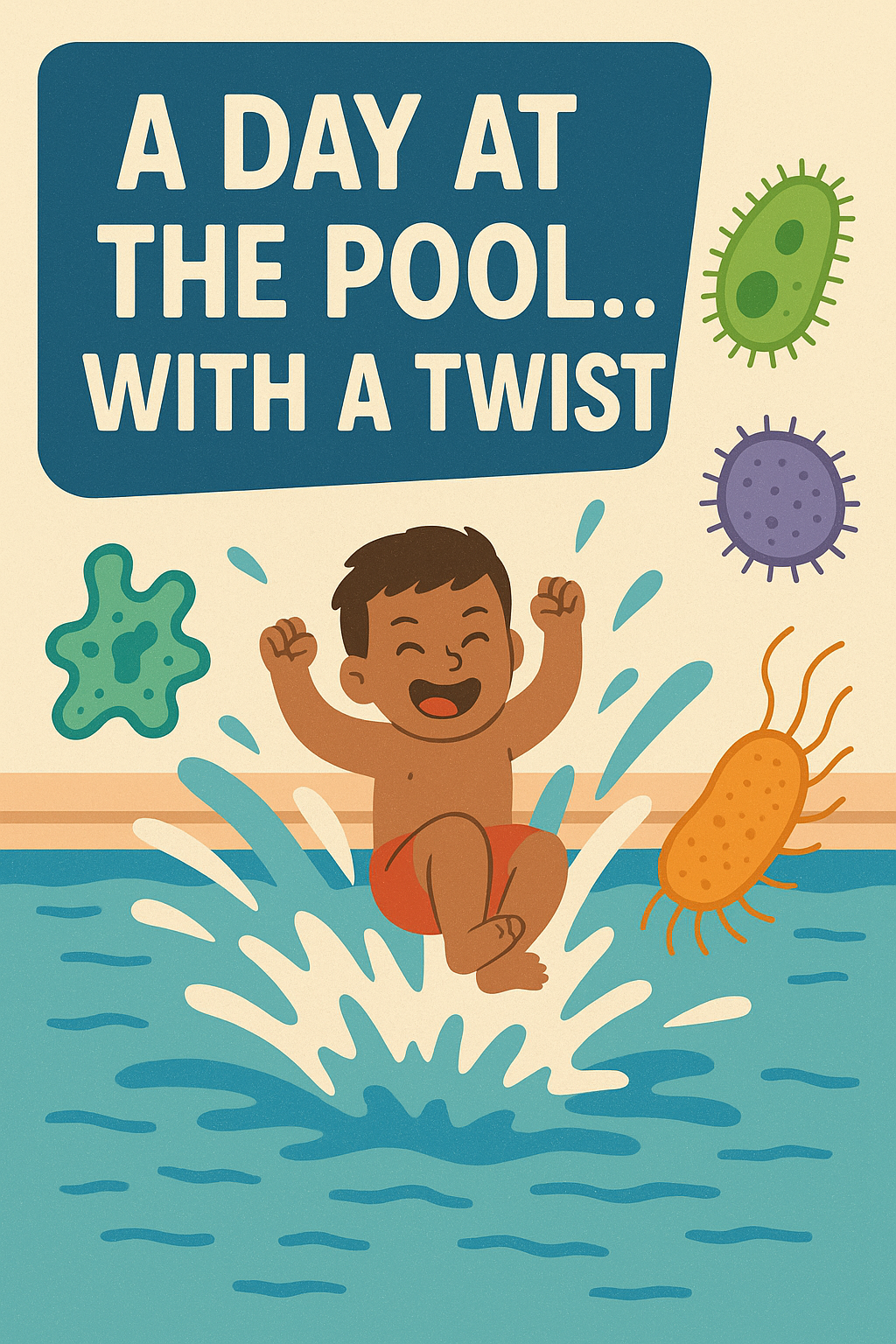
Water Wars: The Battle of Microbes in Swimming Pools
Share
Splash! You cannonball into the pool, but you aren't the only one making waves. Swimming pools are battlegrounds where humans and microbes collide. While chlorine works hard to protect us, some microbes like Giardia and Cryptosporidium are tougher than you'd think! These tiny invaders can cause itchy skin, upset stomachs, and worse if pools aren't properly maintained. Dive into the science of chlorination, learn about the importance of showering before you swim, and discover how even the most sparkling waters can hide microbial mysteries.
A Day at the Pool... with a Twist
It starts like any other sunny day. You head to your neighborhood pool, towel in hand, ready to cool off. But what if you could see the water under a microscope? Beneath the shimmering surface live thousands of tiny organisms. Most are harmless, but some—especially in improperly maintained pools—are not.
Microbial Invaders: Giardia, Crypto, and Friends
Giardia and Cryptosporidium (or Crypto) are parasites that can cause unpleasant stomach illnesses—and they’re tougher than you'd think. Thanks to their hard outer shells, they can survive in chlorinated water for days. These microbes come from fecal matter (yep, poop!) and just one infected swimmer—or someone who skips the pre-swim shower—can introduce them into the pool.
Other bacteria, like Pseudomonas aeruginosa, love to hang out in hot tubs and can cause itchy rashes or swimmer’s ear. These microbes don’t care how cool your floatie is—they’re just here to multiply.
How Chlorine Fights Back
Luckily, chlorine is like the superhero of pool chemicals. It destroys bacteria and viruses before they cause harm. But there’s a catch: chlorine needs time, the right concentration, and proper pH levels to do its job effectively. Too many swimmers, high heat, or lots of organic matter (like sweat and sunscreen) can reduce its effectiveness.
Simple Rules for Safer Swims
Want to win the water war? Start with a few simple rules: Shower before swimming. Don’t pee in the pool. Stay out of the pool if you’re sick. And always check that the pool is being tested and treated regularly. A clean pool is a safe pool—and still the best place for cannonballs and Marco Polo.
Who Wins the Water War?
Clean, safe water means microbes stay in check and everyone gets to have fun. Plus, understanding the invisible battles in our pools just makes summer swimming that much more fascinating.
Ready to be a frontline defender in the Water Wars? Share this article with your fellow pool enthusiasts to spread awareness and help keep our community pools safe and fun for everyone!
Learn More:
Centers for Disease Control and Prevention. (n.d.). About Crypto infections. CDC. Retrieved from https://www.cdc.gov/cryptosporidium/about/index.html
Centers for Disease Control and Prevention. (n.d.). About Giardia infection. CDC. Retrieved from https://www.cdc.gov/giardia/about/index.html
Prabakaran, M., Weible, L. J., Champlain, J. D., Jiang, R. Y., Biondi, K., Weil, A. A., Van Voorhis, W. C., & Ojo, K. K. (2023). The Gut-Wrenching Effects of Cryptosporidiosis and Giardiasis in Children. Microorganisms, 11(9), 2323. https://doi.org/10.3390/microorganisms11092323
Kennedy, M. (n.d.). Chlorine can kill germs on surfaces, but it's more effective at cleaning water — here's why chlorine is better off in your pool. Edited by S. Crozier. Business Insider. Retrieved from https://www.businessinsider.com/guides/health/does-chlorine-kill-germs-and-viruses
